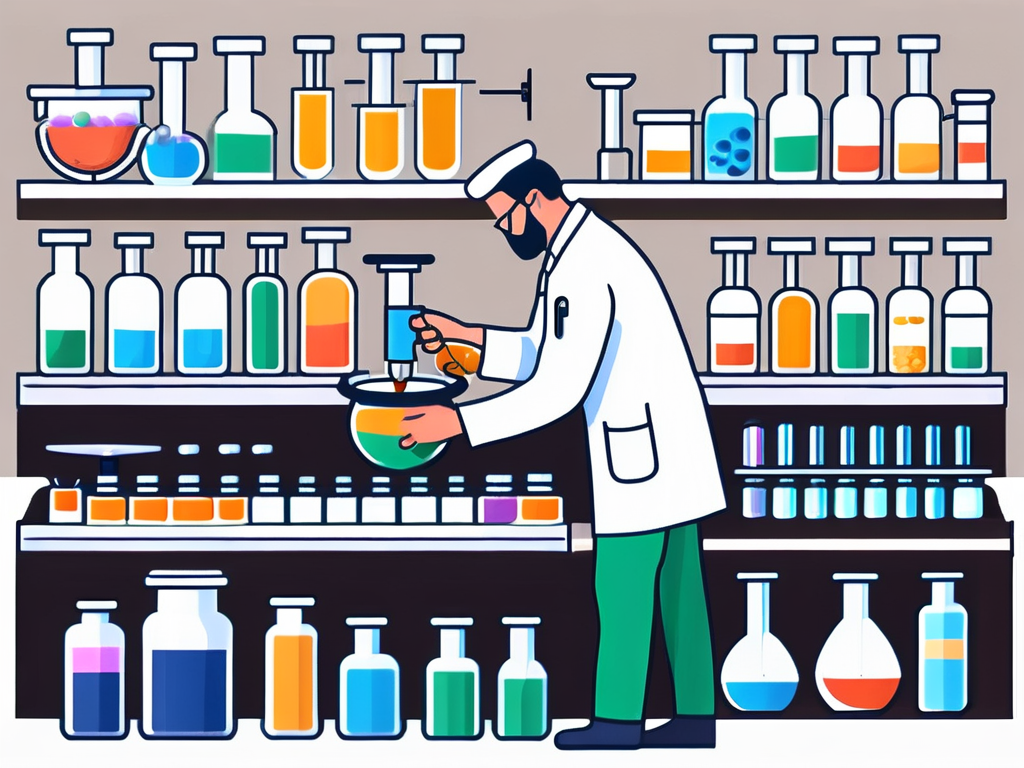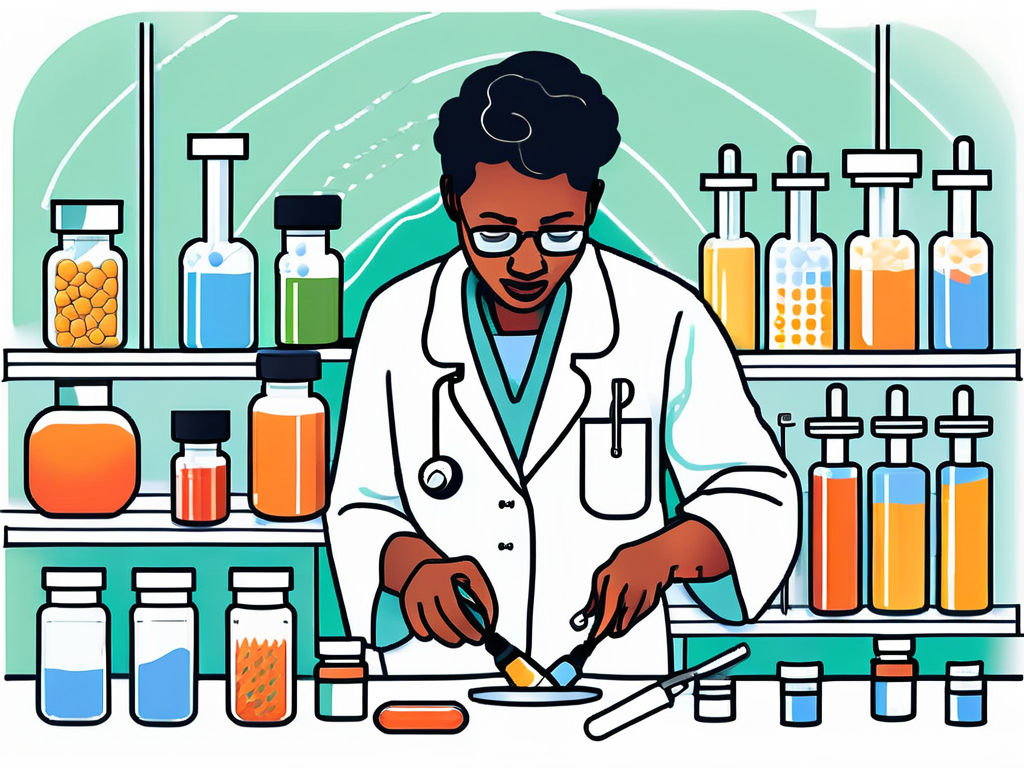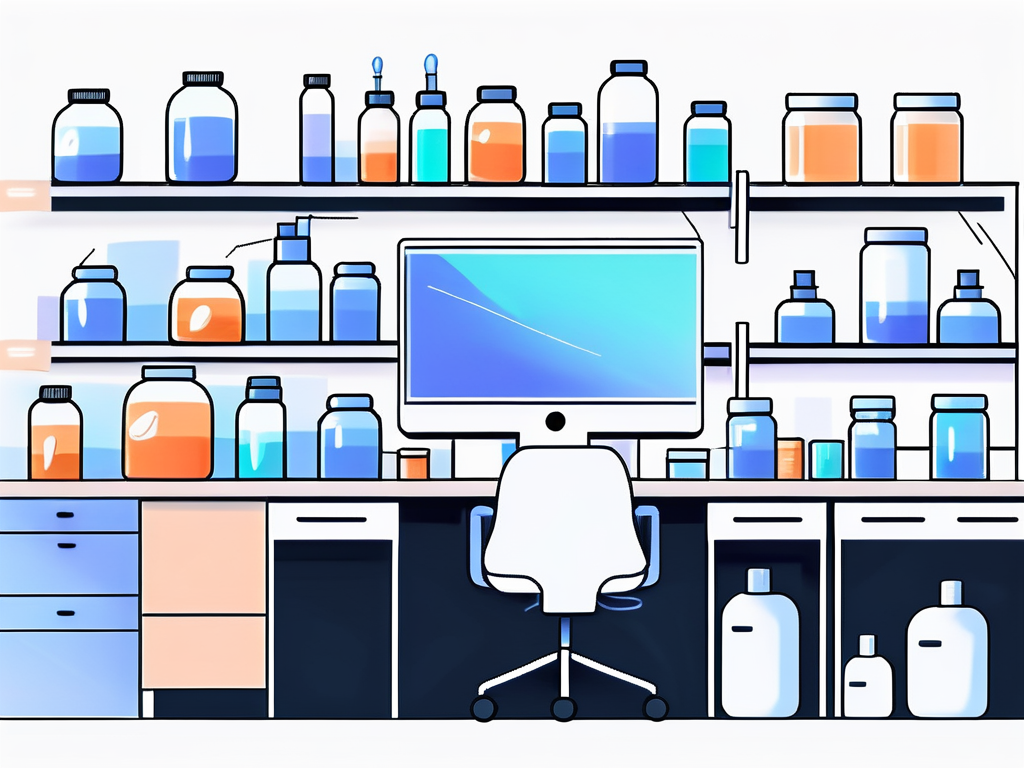In the world of pharmacy, compounding plays a crucial role. It’s the art and science of creating personalized medications for patients, tailored to their specific needs. Non-sterile compounding, a subset of this practice, involves the preparation of medications that do not require a sterile environment. This article will delve deep into the world of non-sterile compounding, providing a comprehensive glossary of terms and concepts related to this fascinating field.
Compounding pharmacies are the backbone of this practice, providing a variety of services that go beyond the scope of traditional pharmacies. They offer solutions for patients who can’t take certain medications due to allergies, need a different dosage form, or require a medication that’s been discontinued. Let’s explore this in detail.
Understanding Non-Sterile Compounding
Non-sterile compounding involves the preparation of medications that do not require a sterile environment. These medications are typically administered orally, topically, or through the rectum or vagina. They do not involve injections, intravenous infusions, or any other form of administration that bypasses the body’s natural defenses against bacteria and other pathogens.
The process of non-sterile compounding can involve anything from mixing two creams together to creating a medication from scratch using raw chemicals. The goal is to create a medication that is tailored to the patient’s specific needs, whether that means avoiding certain allergens, creating a more palatable flavor, or adjusting the dosage.
Types of Non-Sterile Compounded Medications
There are many types of non-sterile compounded medications, including capsules, tablets, creams, ointments, gels, and suppositories. These medications can be customized in a variety of ways, such as by adjusting the dosage, changing the flavor, or eliminating potential allergens.
For example, a patient who has difficulty swallowing pills might benefit from a compounded medication in a liquid form. Or, a patient with a skin condition might need a custom-made cream that contains a specific concentration of active ingredients.
Regulations and Standards
Non-sterile compounding is regulated by both state and federal laws, as well as professional standards. In the United States, the United States Pharmacopeia (USP) sets the standards for compounding pharmacies, including guidelines for non-sterile compounding.
These guidelines, known as USP <797> and USP <795>, cover everything from the ingredients used in compounding to the training and qualifications of the compounding personnel. They also provide guidance on quality control, documentation, and other important aspects of the compounding process.
The Role of Compounding Pharmacies
Compounding pharmacies are specialized pharmacies that provide compounding services. They work closely with healthcare providers and patients to create customized medications that meet the patient’s specific needs.

These pharmacies have the equipment, resources, and expertise necessary to compound medications safely and effectively. They also have access to a wide range of pharmaceutical ingredients, allowing them to create a vast array of customized medications.
Services Offered
Compounding pharmacies offer a variety of services, including non-sterile compounding, sterile compounding, and veterinary compounding. They can also provide consultations and advice on medication management, helping patients understand how to take their medications safely and effectively.
In addition to compounding medications, these pharmacies can also provide other specialized services, such as hormone replacement therapy, pain management, and nutritional supplements.
Quality Assurance and Control
Quality assurance and control are critical aspects of the services provided by compounding pharmacies. These pharmacies must adhere to strict standards and regulations to ensure the safety and effectiveness of their compounded medications.
This includes regular testing of their compounded medications, thorough documentation of their compounding processes, and ongoing training for their staff. In addition, they must maintain a clean and safe compounding environment to prevent contamination of their medications.
Benefits of Non-Sterile Compounding
Non-sterile compounding offers several benefits for patients and healthcare providers. For patients, it provides a way to receive medications that are tailored to their specific needs, improving their treatment outcomes and quality of life.

For healthcare providers, non-sterile compounding offers a way to provide personalized care for their patients. It allows them to adjust the dosage, form, and ingredients of a medication to meet the patient’s unique needs, improving their ability to manage their patient’s health conditions.
Personalized Medications
One of the main benefits of non-sterile compounding is the ability to create personalized medications. This can be particularly beneficial for patients who have allergies or sensitivities to certain ingredients, need a different dosage form, or require a medication that’s been discontinued.
By working with a compounding pharmacy, healthcare providers can create a medication that meets the patient’s specific needs, improving their treatment outcomes and quality of life.
Improved Patient Compliance
Non-sterile compounding can also improve patient compliance with their medication regimen. By adjusting the flavor, form, or dosage of a medication, healthcare providers can make it easier for patients to take their medications as prescribed.
For example, a patient who has difficulty swallowing pills might be more likely to take their medication if it’s in a liquid form. Or, a patient who dislikes the taste of their medication might be more likely to take it if it’s flavored to their liking.
Challenges and Considerations
While non-sterile compounding offers many benefits, it also comes with its own set of challenges and considerations. These include the need for specialized training and equipment, the risk of contamination, and the need for strict quality control.
It’s also important to note that not all medications can be compounded, and not all patients are suitable candidates for compounded medications. Healthcare providers must carefully consider the risks and benefits before prescribing a compounded medication.
Training and Equipment
Non-sterile compounding requires specialized training and equipment. Compounding personnel must have a thorough understanding of the compounding process, including the properties of the ingredients they’re working with, the techniques for mixing and preparing the medication, and the standards and regulations they must adhere to.
In addition, compounding pharmacies must have the necessary equipment to compound medications safely and effectively. This includes mixing equipment, measuring devices, and protective gear for the compounding personnel.
Quality Control and Regulation
Quality control is a critical aspect of non-sterile compounding. Compounding pharmacies must adhere to strict standards and regulations to ensure the safety and effectiveness of their compounded medications.
This includes regular testing of their compounded medications, thorough documentation of their compounding processes, and ongoing training for their staff. In addition, they must maintain a clean and safe compounding environment to prevent contamination of their medications.
Conclusion
Non-sterile compounding is a vital part of pharmacy practice, providing a way for patients to receive personalized medications that meet their specific needs. It offers numerous benefits, including improved treatment outcomes, better patient compliance, and the ability to provide personalized care.

However, it also comes with its own set of challenges and considerations, including the need for specialized training and equipment, the risk of contamination, and the need for strict quality control. By understanding these aspects, healthcare providers can make informed decisions about when and how to use non-sterile compounding in their practice.


